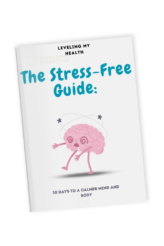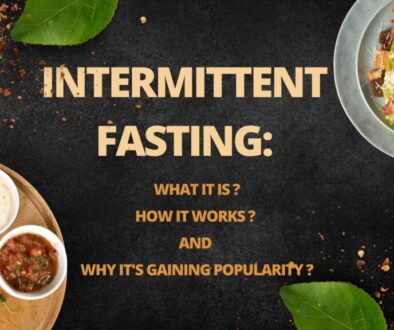What is Leaky Gut and How to Fix It Naturally
Gut health isn’t just about digestion; it’s the linchpin of overall wellness. From influencing our immune system to affecting mood, the gut plays a central role. But when the delicate lining of the gut becomes compromised, we face a cascade of issues collectively known as “leaky gut.” This condition can lead to a host of inflammatory and immune responses throughout the body. The goal of this guide is simple yet powerful: understand leaky gut and explore ways to naturally restore your gut’s integrity.
What is Leaky Gut?
An Overview of Gut Permeability
- Leaky gut, or increased intestinal permeability, occurs when the gut lining—meant to act as a selective barrier—becomes compromised.
- Instead of only letting nutrients pass through, harmful substances like toxins, bacteria, and undigested food particles can “leak” into the bloodstream.
- This leakage triggers an immune response, leading to inflammation and a myriad of symptoms across the body.

🌟 Take control of your stress today! Grab The Stress-Free Guide: 30 Days to a Calmer Mind and Body and start your journey toward peace and resilience.

Common Causes of Leaky Gut
- Poor Diet and Processed Foods
Modern diets high in refined sugars, unhealthy fats, and artificial additives can wreak havoc on the gut lining. Processed foods are often low in fiber, which is essential for gut health. - Chronic Stress and Its Effect on the Gut Lining
Stress isn’t just a mental burden—it can weaken the gut barrier by reducing blood flow to the digestive tract and increasing cortisol, a hormone linked to gut inflammation. - Overuse of Antibiotics and Medications
While antibiotics are sometimes necessary, they can disrupt the balance of gut flora, reducing protective bacteria and making the gut lining more vulnerable. Nonsteroidal anti-inflammatory drugs (NSAIDs) can also erode the gut lining over time. - Environmental Toxins and Gut Health
Everyday exposure to toxins—from pesticides to heavy metals—can stress the liver and compromise gut barrier function.
The Gut-Brain Connection:
How a Leaky Gut Affects Mental Health
- The gut and brain are intricately linked via the gut-brain axis.
- A leaky gut can contribute to a “leaky brain,” allowing harmful substances to reach the brain and triggering neuroinflammation.
- This connection helps explain why gut issues often coincide with mood disorders like anxiety and depression.
Symptoms to Watch For:
Is Leaky Gut Affecting You?
- Digestive Symptoms: Bloating, Diarrhea, Constipation
Gut permeability often manifests as common digestive complaints like bloating, gas, and irregular bowel movements.
- Systemic Symptoms: Fatigue, Headaches, Skin Rashes
The inflammation stemming from a leaky gut isn’t limited to the gut. Fatigue, brain fog, and even eczema or acne may be signs of gut dysfunction.

The Role of Nutrition in Healing Leaky Gut
Foods that Harm Gut Health and Increase Permeability
- Refined Sugars and Processed Foods
Sugar promotes the growth of harmful bacteria and yeast, disrupting the gut’s microbial balance. - Gluten and Inflammatory Foods
Gluten, found in wheat and related grains, can trigger inflammation in some individuals. - Alcohol and Its Impact on Gut Lining
Alcohol irritates the gut lining and disrupts the microbiome, making it harder for the gut to repair itself.

🧘♀️ Ready to embrace a calmer, healthier you? Unlock practical, science-backed techniques in The Stress-Free Guide to transform stress into serenity.

The Leaky Gut Diet:
Foods that Promote Healing
- Bone Broth and Collagen-Rich Foods
Bone broth is rich in collagen and amino acids that can soothe and repair the gut lining. - Fermented Foods and Probiotics for Gut Flora
Foods like yogurt, kefir, sauerkraut, and kimchi provide beneficial bacteria that restore balance in the gut. - High-Fiber Foods and Their Impact on Gut Health
Fiber acts as food for beneficial gut bacteria, promoting a diverse and resilient microbiome. - Anti-Inflammatory Superfoods
Ginger, turmeric, and omega-3 fatty acids help combat inflammation and support gut healing.
Managing Stress to Heal the Gut
- The Role of Relaxation Techniques and Meditation
Practicing mindfulness, deep breathing, or meditation can reduce stress hormones and enhance gut function. - How Exercise Impacts the Gut: Moderation is Key
While moderate exercise can support gut health, intense physical exertion can deplete glutamine, leading to gut dysfunction.
Natural Strategies to Repair Leaky Gut
Essential Vitamins and Supplements for Gut Repair
- The Importance of Glutamine in Gut Lining Repair
Glutamine, a crucial amino acid, serves as fuel for gut cells and helps maintain their integrity. - Benefits of Probiotics and Prebiotics
Probiotics introduce beneficial bacteria, while prebiotics feed them, ensuring a thriving gut microbiome. - Collagen Peptides and Their Role in Healing
Collagen supports the structure and elasticity of the gut lining. - Other Helpful Supplements (e.g., Zinc, Omega-3s)
Zinc supports gut barrier integrity, while omega-3 fatty acids reduce inflammation.
Lifestyle Changes to Support Gut Health
- Prioritizing Quality Sleep and Its Impact on Gut Repair
Sleep is a critical time for bodily repair, including gut healing. Aim for 7-9 hours per night to reduce stress and inflammation. - The Importance of Avoiding Environmental Toxins
Reducing exposure to pesticides, plastics, and heavy metals can lessen the toxic burden on your gut. - Building Healthy Eating Habits for Long-Term Gut Health
Consistent healthy eating patterns—like mindful eating and incorporating whole foods—lay the foundation for a resilient gut.
Success Stories and Case Studies
- Real-Life Examples of People Who Healed Their Leaky Gut Naturally
Stories of individuals who transformed their health by making dietary and lifestyle changes illustrate the power of natural interventions. - Key Takeaways and Lessons Learned from Their Experiences
Insights and practical tips drawn from their journeys can empower others to embark on their own gut-healing path.
Final Tips and Takeaways for Long-Term Gut Health
- Summary of Key Points to Remember
Prioritize gut-nourishing foods, manage stress, and support your gut with strategic supplements and lifestyle changes. - Encouragement to Take Proactive Steps for Gut Healing
A healthy gut is within reach. Small, consistent changes can lead to profound transformations. - Additional Resources and Guides for Deeper Exploration of Leaky Gut Healing
Recommended books, online resources, and expert consultations for those seeking further guidance.
📖 Your stress-free life starts here! Get your copy of The Stress-Free Guide and make stress relief a sustainable part of your daily routine.

These studies cover the impact of diet, stress, supplements, and the gut-brain connection in gut health:
-
Study on Gut Permeability and Gluten Sensitivity
“Intestinal permeability and its regulation by zonulin: diagnostic and therapeutic implications.”
Source: Clinical Gastroenterology and Hepatology
Link to study -
The Role of Probiotics in Gut Health
“Probiotic and prebiotic influence on gut health and microbiota composition.”
Source: Journal of Clinical Gastroenterology
Link to study -
Impact of Stress on Gut Health
“Stress and the gut: Pathophysiology, implications for diagnosis and treatment.”
Source: Journal of Gastroenterology and Hepatology
Link to study -
Glutamine Supplementation for Gut Integrity
“Glutamine protects the gut mucosa during stress-induced damage.”
Source: World Journal of Gastroenterology
Link to study -
The Gut-Brain Axis and Mood Disorders
“Gut microbiota’s effect on mental health: The gut-brain axis.”
Source: Current Opinion in Clinical Nutrition & Metabolic Care
Link to study -
Effectiveness of Bone Broth in Healing the Gut
While direct studies on bone broth specifically are limited, bone broth is rich in collagen, which has been shown to support gut barrier function:
“Collagen supplementation for gut health and skin elasticity.”
Source: Journal of Clinical Nutrition
Link to study -
Role of Fermented Foods in Enhancing Gut Flora
“Fermented foods, microbiota, and mental health: A review of the current evidence.”
Source: Frontiers in Nutrition
Link to study -
Chronic Stress and Gut Dysbiosis
“The impact of chronic stress on intestinal health: Implications for inflammatory diseases.”
Source: Journal of Physiology and Biochemistry
Link to study




